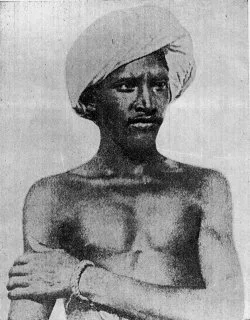Introduction:
Birsa Munda, born in the late 19th century, stands as an iconic figure in India's history, particularly in the context of the tribal struggle against British colonial rule. His life, marked by unwavering determination and a commitment to justice, has left a lasting impact on the nation. This article delves into the life, achievements, and legacy of Birsa Munda, exploring the crucial role he played in shaping the narrative of tribal rights and India's fight for independence.
Early Life and Background:
Birsa Munda was born in 1875 in Ulihatu, Bihar, in a Munda tribal family. Growing up in the Chotanagpur plateau, he witnessed firsthand the exploitation and oppression faced by his community under British rule. The harsh conditions fueled his resolve to bring about change and justice for his people.
Founding the Munda Raj Movement:
Birsa Munda emerged as a charismatic and visionary leader, rallying the Munda tribal community against the oppressive British regime. In 1899, he founded the Munda Raj movement, a socio-religious movement with the aim of establishing a Munda Raj, or a self-governing tribal state. This movement went beyond political aspirations; it sought to address the social, economic, and cultural rights of the tribal population.
Social and Economic Reforms:
Birsa Munda's leadership extended beyond political realms. He envisioned a society that was free from exploitation and discrimination. As part of the Munda Raj movement, he advocated for land reforms, challenging the hegemony of landlords and ensuring that the benefits of the land reached the tribal communities. His focus on economic and social justice made him a beacon for those seeking liberation from oppressive conditions.
Role in the Indian Independence Movement:
Birsa Munda's contributions were not confined to the tribal regions; his influence played a pivotal role in the broader Indian independence movement. His ability to mobilize and unite people across communities garnered support beyond the tribal context. His efforts resonated with the overarching goal of a free and independent India.
Tragic End and Legacy:
In 1900, Birsa Munda's life was tragically cut short under mysterious circumstances while in British custody. Despite his untimely demise, his legacy endured as a symbol of resistance and folk hero. The Munda community and beyond continued to draw inspiration from his life and principles.
Conclusion:
Birsa Munda's life was a testament to resilience, courage, and a deep commitment to justice. His role in the Munda Raj movement and the broader Indian independence movement marked him as a transformative figure in history. Today, his legacy lives on, reminding us of the ongoing struggle for tribal rights and the importance of individuals like Birsa Munda in shaping a more just and equitable society.












0 Comments:
ಕಾಮೆಂಟ್ ಪೋಸ್ಟ್ ಮಾಡಿ